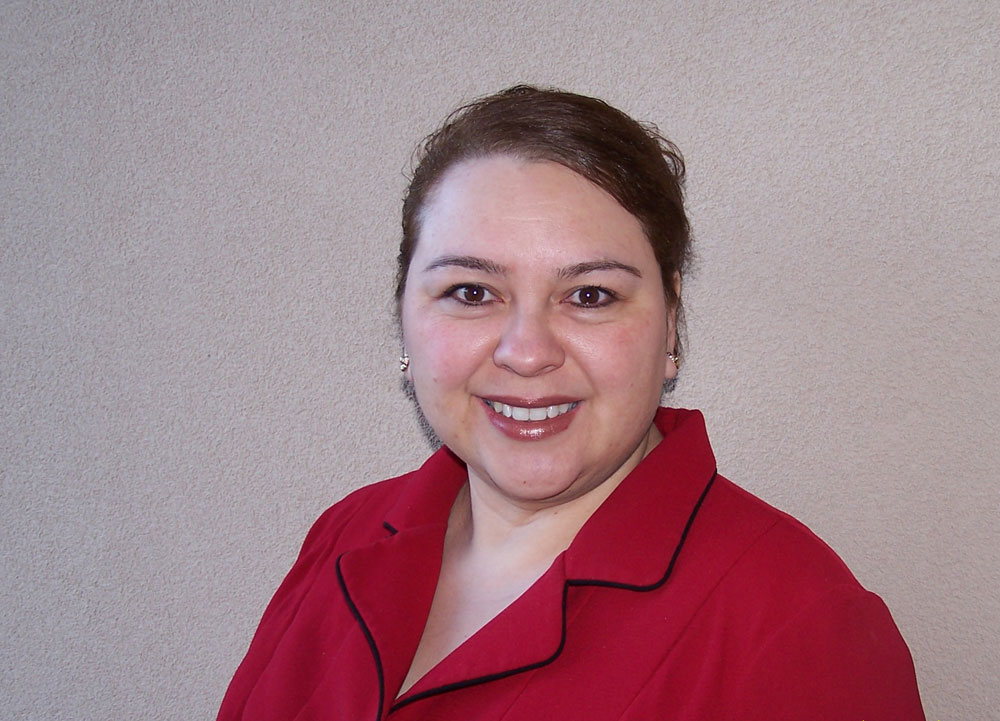EL PASO – Memories flowed with the tears as the anthropology professor recalled the hardscrabble days when as a child she stooped to pick lettuce in the fields of New Mexico from early morning until dusk.
“I picked everything I can possibly think of except for watermelon and grapes,” says Dr. Gina Núñez-Mchiri, 38, who teaches at the University of Texas at El Paso. She was only eight when she started working alongside her mom and dad and her four siblings. It was exhausting work, hard on her little body, dirty and sweaty.

“Growing up with migrant farm working parents was very difficult, very challenging,” Núñez-Mchiri says. (Courtesy of Gina Nunez-Mchiri)
“Growing up with migrant farm working parents was very difficult, very challenging,” Núñez-Mchiri says. “Being the oldest of five, I grew up keeping an eye on my brothers and sisters, helping raise them, helping to protect them.” Her mother did her share, wrapping lettuce in plastic and packing it in boxes, she said. “I wouldn’t say we were ever poor, but being a large family we all had to pitch in. It’s a tough, nomadic life.”
With tears streaming, she recalled a time in between seasons when there was no work and no way to feed five children. “My mother’s friend was at our house three hours after learning of our situation. She had brought with her two coolers filled with food for us. I will never forget that day.”
Núñez-Mchiri’s father picked lettuce in the fields with her and later he became the supervisor of a large lettuce company. She remembers him telling her and her siblings that college was life. That without a proper education they would be limited, tied down to a life on the field. “A very tough one,” he would say.
Her most recent accomplishment is that of a faculty fellowship from the American Association of Hispanics in Higher Education in 2011. This last award recognizes those of Hispanic, Latino and/or Chicano Background who have demonstrated ability to contribute to a defined area of scholarship and to the enhancement of Latinos in higher education. Twelve individuals were chose nation-wide, all “young scholars” under the age of 40. “I never knew who nominated me,” Núñez-Mchiri says, “I never applied therefore I was extremely surprised and grateful.”
Since the family of seven was forced to move every two months to follow the harvest, Núñez-Mchiri left behind schools, friends, and most importantly her own sense of belonging. “I had such a hunger to feel connected, to feel like I belonged to one place, because I didn’t.”
Leaving home and her family for the first time was a strong blow for all of them, she said. San Diego State University was only two hours away from her home, yet that didn’t take away from the fact this was a huge, life-defining step. “Being the oldest, I had to set an example for the rest to follow. If I stayed, they all would. I felt it was extremely important that I set a pathway to show them that a different life was possible.”
Having to adapt quickly to unknown places and situations, building relationships from the ground up, and making new friends were all part of Núñez-Mchiri’s life growing up. Despite the adversity, she is proud to say these experiences have greatly influenced her personality today, giving her confidence and a sense of empowerment. She describes herself as a go-getter. “You have to be one or you’ll be eaten alive,” she laughs.
Born in Salinas, California, Núñez-Mchiri is a proud Latina. “When I was little,” she recalls, “they would call me chicanita because I would speak both English and Spanish.” Today, she comments on the fact of how being bilingual is a vital tool in our multicultural societies.
In 2004, Dr. Núñez-Mchiri arrived to The University of Texas at El Paso as a visiting professor. Only one year later, she was offered a tenure-track professor position in 2005. In between her personal life and classes, at night and on the weekends, she found the time to work on her thesis. “While working on my PhD, it was always important for me to know that my effort would have an impact, that I could use it for the better, not only to have a prestigious title.”
After two years of hard work, Núñez-Mchiri received her PhD in 2006 and is now an assistant professor of cultural anthropology at UTEP. “My roles here at UTEP are many. I’m not only a professor but a mentor, a colleague, a friend. We support each other. To have friends one must be a friend. It’s a fair exchange.”
Currently, Núñez- Mchiri continues working on her book, Building Communities on the US/Mexico Border.
_____
Editor’s note: This article has been revised to reflect the following correction:
Dr. Gina Núñez-Mchiri received a faculty fellowship from the American Association of Hispanics in Higher Education in 2011 not 2010. (Correction: February 25, 2011)


Gina: Abrazos y felicitaciones. All Chicanos should experience a day working in agricultural jobs to understand the value of a higher education. Gina knows that even a half day picking strawberries will make you think about althernatives for making a living. Your back will hurt for a week if you’re not used to doing that job. If you’re used to doing that job your back will only hurt every day. Organizing a “Day in the Field” with cooperating farmers would give young people a glimpse of the future without higher education.
Solo los que tienen el Valor de asuimir la responsabilidad de su vida llegan lejos… You just need to Care enough!!